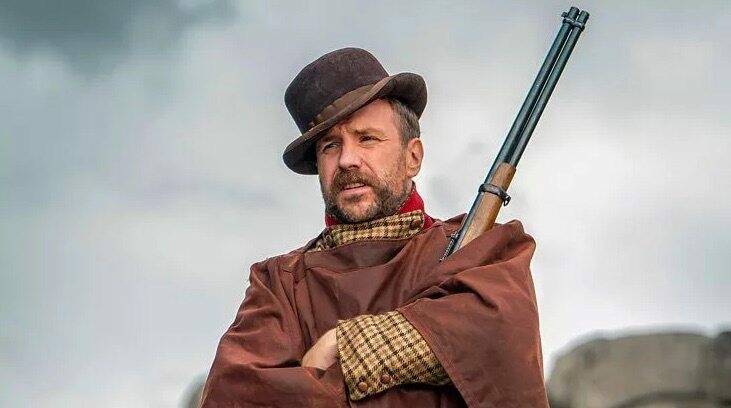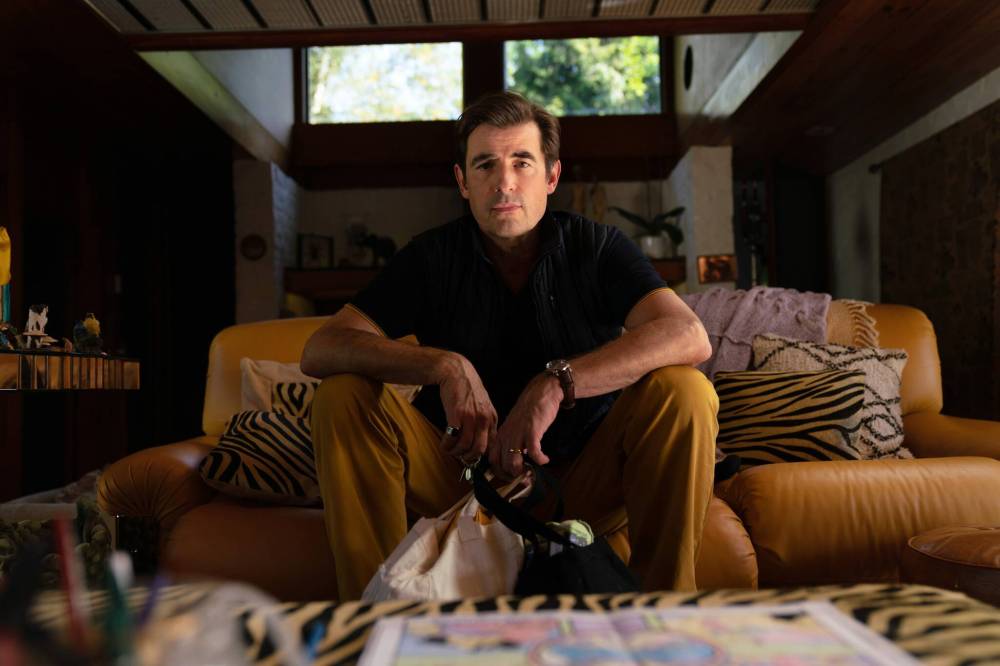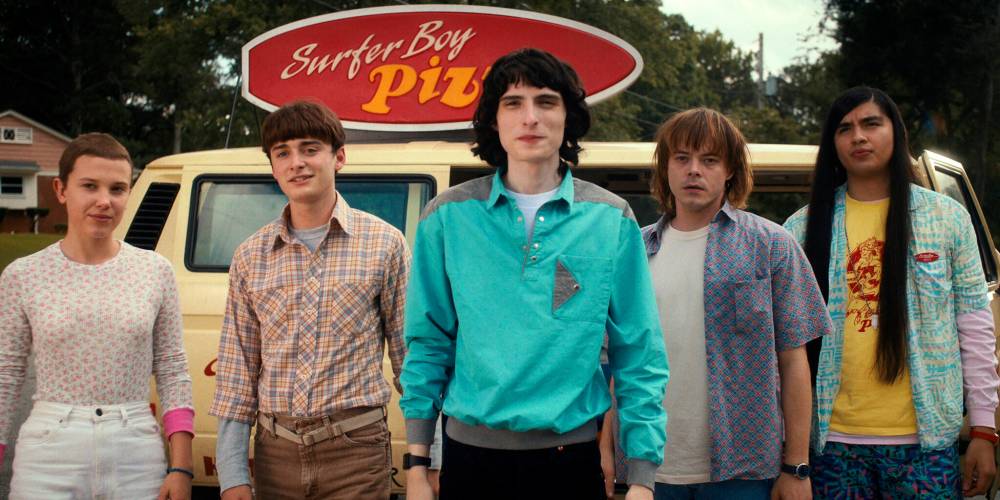Delayed gratification, spoilering and ‘squelching wetly’ The 2022 year in television is marked as much by how we watched as what we loved, not to mention who we loved to hate
Read this article for free:
or
Already have an account? Log in here »
To continue reading, please subscribe:
Monthly Digital Subscription
$0 for the first 4 weeks*
- Enjoy unlimited reading on winnipegfreepress.com
- Read the E-Edition, our digital replica newspaper
- Access News Break, our award-winning app
- Play interactive puzzles
*No charge for 4 weeks then price increases to the regular rate of $19.00 plus GST every four weeks. Offer available to new and qualified returning subscribers only. Cancel any time.
Monthly Digital Subscription
$4.75/week*
- Enjoy unlimited reading on winnipegfreepress.com
- Read the E-Edition, our digital replica newspaper
- Access News Break, our award-winning app
- Play interactive puzzles
*Billed as $19 plus GST every four weeks. Cancel any time.
To continue reading, please subscribe:
Add Free Press access to your Brandon Sun subscription for only an additional
$1 for the first 4 weeks*
*Your next subscription payment will increase by $1.00 and you will be charged $16.99 plus GST for four weeks. After four weeks, your payment will increase to $23.99 plus GST every four weeks.
Read unlimited articles for free today:
or
Already have an account? Log in here »
Hey there, time traveller!
This article was published 26/12/2022 (1084 days ago), so information in it may no longer be current.
The year-end television list is usually just that, a list. Top this, best that, in increments of 10 or 15 or, in the case of this year, 22. Sometimes, it’s not just “top” or “best,” but rather “essential” or “important” or “defining” (which, wow, relax).
Best TV villains of 2022
From butchers to businessmen (and women), here are five of the best baddies we loved to hate this year.
David Melmont (Rafe Spall), The English, Prime Video
There is no shortage of truly reprehensible souls in Hugo Blick’s gorgeous, astonishingly violent 1890s western, but David Melmont, a London butcher-turned-businessman played by British actor Spall (The Big Short), takes the cake. A bloodthirsty monster with a head for numbers, he will stop at nothing to conquer the new frontier. Chilling.
From butchers to businessmen (and women), here are five of the best baddies we loved to hate this year.
David Melmont (Rafe Spall), The English, Prime Video
There is no shortage of truly reprehensible souls in Hugo Blick’s gorgeous, astonishingly violent 1890s western, but David Melmont, a London butcher-turned-businessman played by British actor Spall (The Big Short), takes the cake. A bloodthirsty monster with a head for numbers, he will stop at nothing to conquer the new frontier. Chilling.
John Paul Williams (Claes Bang), Bad Sisters, Apple+
We know from the opening scenes of this terrific Irish black comedy that John Paul is dead. What we don’t know is how it happened or who did it, but Danish actor Claes Bang (Dracula, The Square) makes damned sure we want to give the killer a bouquet of flowers and perhaps a small cash reward. He’s smug, smarmy, scheming and emotionally abusive — just loathesome in every respect.
Richard Sackler (Michael Stuhlbarg), Dopesick, Disney+
While the other villains on this list sprang from the depraved minds of screenwriters, Richard Sackler’s nefarious deeds are all too real. In this fact-based miniseries based on Beth Macy’s book of the same name, the peerless Stuhlbarg (A Serious Man, Boardwalk Empire) plays the scion of the billionaire Sackler family and head of the Purdue Pharma empire who ruthlessly contributed to the worldwide opioid crisis after ignoring warnings about the addictive qualities of his company’s drug, Oxycontin.
Harmony Cobel/Mrs. Selvig (Patricia Arquette), Severence, Apple+
Is there anything more evil than a middle manager who obeys orders unquestioningly (oh, and adopts an alter ego to spy on her employees)? If it’s not exactly clear what Harmony Cobel is up to on the puzzling, wonderful workplace thriller Severance, we can be certain that it’s nothing good. Sporting a frosty silver mane, Arquette is excellent as a steely supervisor who might be out of her depth.
Eduardo (Lalo) Salamanca (Tony Dalton), Better Call Saul, AMC
While Breaking Bad bad guy Gustavo Fring (Giancarlo Esposito) is a buttoned-down, fastidious man who rarely cracks a smile, his Better Call Saul counterpart (and Fring’s rival drug lord) is full of bonhomie, with a friendly grin for for everyone. Cunning and charismatic, the wider his smile, the more likely it is he’s about to unleash a remorseless tide of violence; Dalton, who had previously acted mostly in Mexican films and television, is unforgettable.
— Jill Wilson
But the truth is, there are simply too many shows to do that here. It’s possible, in 2022, for two people to have two completely different viewing habits; even those of us who watch a lot of TV will stumble on shows we’ve never even heard of. We have been perched precariously on the peak of Peak TV for years — per FX Research, a record 559 original scripted series aired across cable, broadcast and streaming in 2021, a spike owing, at least in part, to series that had experienced pandemic-related production delays in 2020. To put that number into context, there were 266 original scripted series on television in 2011, prior to the advent of streaming.
But a year in TV is not just defined by what we watched, but how we watched it. (Though it does seem everyone watched White Lotus, at least.) Here’s how we watched TV in 2022.
The end of the binge-watching era?
One of the initial perks of the streaming revolution was having every single episode in an entire season of television drop at the same time. For those of us who grew up with Appointment Television in the Must-See-TV ’90s and 2000s — as well as the agonizing experience of having to wait an entire summer to see how that cliff-hanging season finale turned out — this was a mind-blowing game-changer. We could just… watch the whole thing. And thus, binge watching — watching most of or an entire season in one go — became the norm. We can thank Netflix for that. The former streaming top dog has always dropped seasons in full, starting with House of Cards.
Prime Video Rafe Spall plays David Melmont, a British former butcher with a head for numbers who relocates to the American West in 'The English'.
But over the past few seasons, there has been a marked return to the new-episode-weekly format of yore, with many of this year’s hottest prestige shows — the final season of Better Call Saul, White Lotus, Severance, Fleishman Is in Trouble, Yellowjackets and others — embracing the weekly model. Netflix isn’t the only streaming game in town anymore, either, and the other big services — including AppleTV+ and Disney+ — have never done full-season drops. Neither have those that straddle streaming and cable, such as HBO and FX.
Appointment Television, as it turns out, has its perks. Binging makes the whole enterprise feel like fast-food or “content”: delicious, disposable and leaving you wanting more. Watching a show over eight or 10 weeks versus eight or 10 hours allows buzz to build, certainly, but it also gives the viewer time to digest what they are consuming.
Spoiler alert
The heyday of blogs and online publications brought with it the Recap Industrial Complex. It is, at many places, someone’s whole job to recap episodes of television shows.
Apple TV+ The mystery 'Bad Sisters' begins with the demise of John Paul Williams. Actor Claes Bang ensures we side with whoever did the deed.
The best include analysis; the worst are “here’s what happened.” But while release schedules are slowing down, spoilers are as much of a social-media minefield as ever. People live-tweet season finales as though they are one-off cultural events like a Super Bowl or an Oscars. Sometimes even a headline in a publication will include a spoiler, or something spoiler adjacent — “director talks about that heart-wrenching ending” — mere hours after something has aired.
And spoilers don’t just arrive in the form of tweets or analysis. They are increasingly arriving in memes. While not necessarily giving away plot points — think of them more like context-free episode trailers — they do sometimes ruin a joke.
The rise of subtitles
A study released in late 2021 by the captioning charity Stagetext revealed something interesting: four out of five 18- to 25-year-olds use closed captions or subtitles all or part of the time. By contrast, less than a quarter of 56- to 75-year-olds use subtitles, despite also being twice as likely to report they are deaf or hard of hearing.
So, what gives?
A few theories. One is the proliferation of shows, thanks to the globalization of streaming, that are either in different languages or feature actors with thick accents. Another is the fact that actors don’t over-enunciate like they used to, instead opting for a more natural — and more mumbly — delivery.
Greg Lewis/AMC/Sony Pictures Television As Lalo Salamanca, 'Better Call Saul' actor Tony Dalton charms … until he chills.
But it’s also very likely that more Gen Z viewers are also doing something else while watching TV. As one Gen Zer told the Telegraph, “The main reason they do it is so they can flick their eyes up and read ahead, then take in the whole scene quickly, and look back down at their phone, or whatever second screen they have.”
The latest season of the Netflix sci-fi/horror drama Stranger Things, which came out in May, really leaned into its captioning, adding all sorts of memeable onscreen, non-dialogue descriptions — there was a lot of “squelching wetly” this season. As my colleague Jill Wilson pointed out, these vividly rendered captions aren’t just valuable to double-screening Gen Zs; they also add a dimension to the storytelling for those who need captions because they are hard of hearing.
Netflix This image released by Netflix shows, from left, Millie Bobby Brown as Eleven, Noah Schnapp as Will Byers, Finn Wolfhard as Mike Wheeler, Charlie Heaton as Jonathan Byers, and Eduardo Franco as Argyle in 'Stranger Things'; The series was nominated for 13 Emmy Awards including one for best drama series.
jen.zoratti@winnipegfreepress.com

Jen Zoratti is a Winnipeg Free Press columnist and author of the newsletter, NEXT, a weekly look towards a post-pandemic future.
Our newsroom depends on a growing audience of readers to power our journalism. If you are not a paid reader, please consider becoming a subscriber.
Our newsroom depends on its audience of readers to power our journalism. Thank you for your support.

